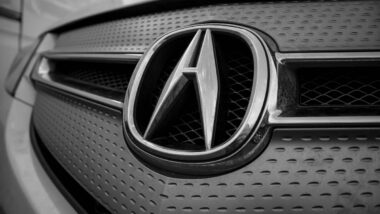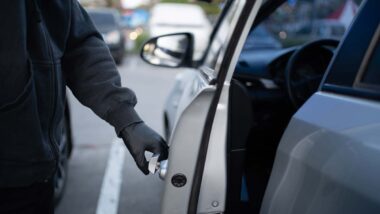Top Class Actions’s website and social media posts use affiliate links. If you make a purchase using such links, we may receive a commission, but it will not result in any additional charges to you. Please review our Affiliate Link Disclosure for more information.
One dangerous vehicle safety defect is seat belt failure. If seat belts fail, drivers and passengers may be at risk of being propelled from the vehicle during an accident. More than a thousand safety recalls have been issued recalling defective seat belts since 1996.
According to the Centers for Disease Control and Prevention, wearing a seat belt is the most effective way to prevent death during a car crash. People who are not wearing a seat belt are 30 times more likely to be thrown from a vehicle during a crash than people who are.
Seat belts save around 15,000 people’s lives every year, according to the National Highway Traffic Safety Administration. When seat belts fail, the risk of injury and death increases.
Seat belts are now required on all vehicles, in order to protect drivers and passengers from being thrown around or ejected from the vehicle during a car accident. Seat belts are generally made up of both a lap belt and a shoulder belt. While most seat belts operate effectively and are responsible for saving the lives of thousands of people a year, some seat belts fail.
Seat belt failure may be caused by a problem in the system that locks the seatbelt in place or keeps the slack tight. When this system is working correctly, it holds the driver or passenger in place during an accident. However, when this system is not working correctly, it may allow excessive slack in the seat belt. During a collision, this extra slack may result in impact with the steering wheel, dashboard, or windshield. In extreme cases of seat belt failure, the slack may be enough to allow the occupant to be ejected from the vehicle.
Seat belt defects may also cause the belt to come unlatched during a collision. While these defective latches may appear to latch when the seat belt is buckled, any force may cause the belt to come undone, leaving drivers and passengers at risk of injury.
What Can I Do If My Seat Belt Fails?
If you or a loved one was injured due to a seat belt failure, you may be eligible to hire an experienced vehicle safety defect attorney and pursue a lawsuit against the vehicle manufacturer. Victims of safety defects may be able to recover compensation for injuries, medical expenses, pain and suffering, and more.
Victims who have been harmed by vehicle safety defects may not need to prove that the manufacturer of the vehicle was negligent, only that the defect caused harm and was dangerous. Having a qualified attorney on your side may make it easier to navigate the legal process and receive compensation for your injuries and harm.
Are Seat Belt Extenders Safe to Use?
Seat belt extenders were created to help oversized drivers and passengers become properly secured in their seat if their girth was too large for the regular length of the standard seat belt.
In the mid-2010s, vehicle manufacturers started to reduce the profile of the seat belt buckle by making the buckle’s anchor sit recessed and in line with the crease of the back seats. This lower profile was allegedly to make the seat belt safer for adults, but parents found the recessed buckles difficult to reach without moving the booster seat with the child already sitting in it.
The Knox News reported on a family who went online and bought an extender they used in their 2012 Nissan Juke. The dad and his two children, one of whom was in a booster seat secured with the seat belt extender, were hit by a drunk driver. The dad was killed, and the son who was in the booster seat using a seatbelt extender was left with permanent brain damage.
The father had purchased the extender, which was made for Ford Motor Company, through an online retailer who had once worked at Ford and had bought the extenders in bulk to make money on the side.
The mother has filed a lawsuit against Ford, alleging that emails prove Ford knew as far back as 2007 that parents were using the seat belt extenders to help them buckle children into booster seats even though the extenders were supposed to be used only when seat belts fail to fit around a large person.
Ford’s attempt to remove itself as a defendant in the lawsuit was struck down by a judge, who also ordered Ford to pay the mother’s attorney fees once he determined Ford knowingly withheld evidence during the discovery period.
The Knox News reported the family had a variety of answers regarding seat belt extenders. The extender came with a warning saying to refrain from using it “unless it is physically required in order to wear the vehicle’s safety belt.” The manual for the Nissan Juke advised, “Never use seat belt extenders to install child restraints.”
Still, the booster seat’s manual purportedly said, “If your vehicle belt is too short, contact your vehicle dealer for a seat belt extender,” and the online retailer where the family bought the seat belt extender advertised the extenders as “perfect” for booster seats.
What Are Vehicle Safety Defects?

If your vehicle contains a safety defect that caused an injury or a death, you may be eligible to hire a qualified attorney and file a class action lawsuit against the vehicle manufacturer. If your vehicle’s safety defect has not yet resulted in an injury, you may still qualify to hire legal representation if the defect is not the subject of a recall and is not covered by a warranty.
Join a Free Vehicle Safety Class Action Lawsuit Investigation
If you own a vehicle that you believe has a safety defect and you are outside of the warranty period or you believe the defect should be covered by the warranty and it’s not, or you or a family member have been injured by a safety related defect, you may qualify to join this vehicle safety defect class action lawsuit investigation.
This article is not legal advice. It is presented
for informational purposes only.
ATTORNEY ADVERTISING
Top Class Actions is a Proud Member of the American Bar Association
LEGAL INFORMATION IS NOT LEGAL ADVICE
Top Class Actions Legal Statement
©2008 – 2024 Top Class Actions® LLC
Various Trademarks held by their respective owners
This website is not intended for viewing or usage by European Union citizens.
















One thought on Can Seat Belts Fail?
Please add me